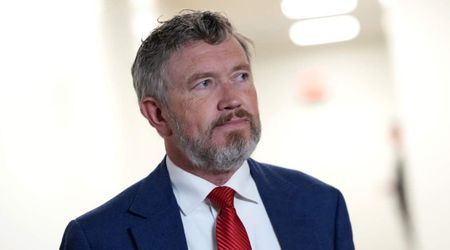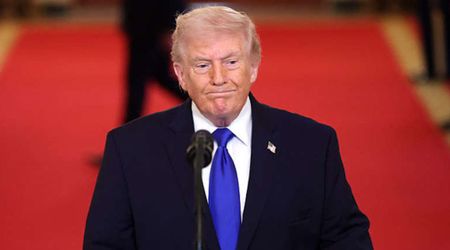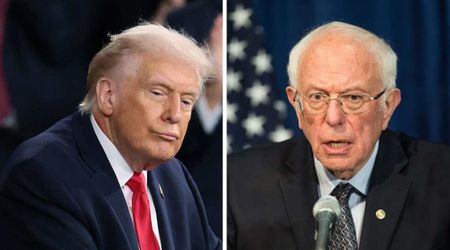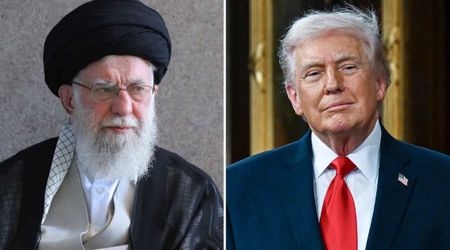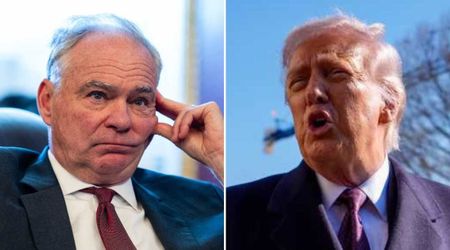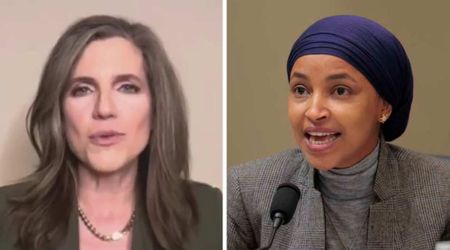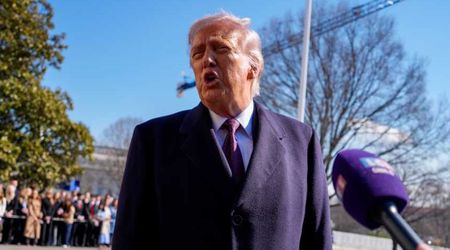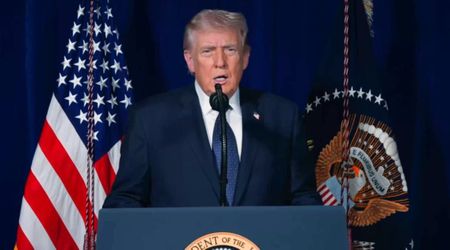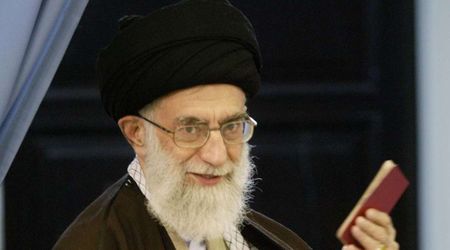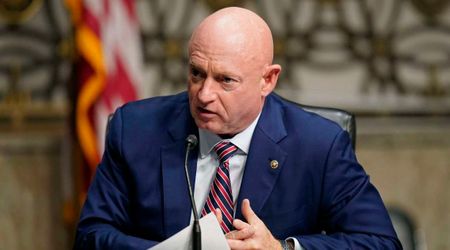‘It’s not going to happen’: Trump shakes head as hush money trial judge reprimands his lawyer for repeating rejected argument
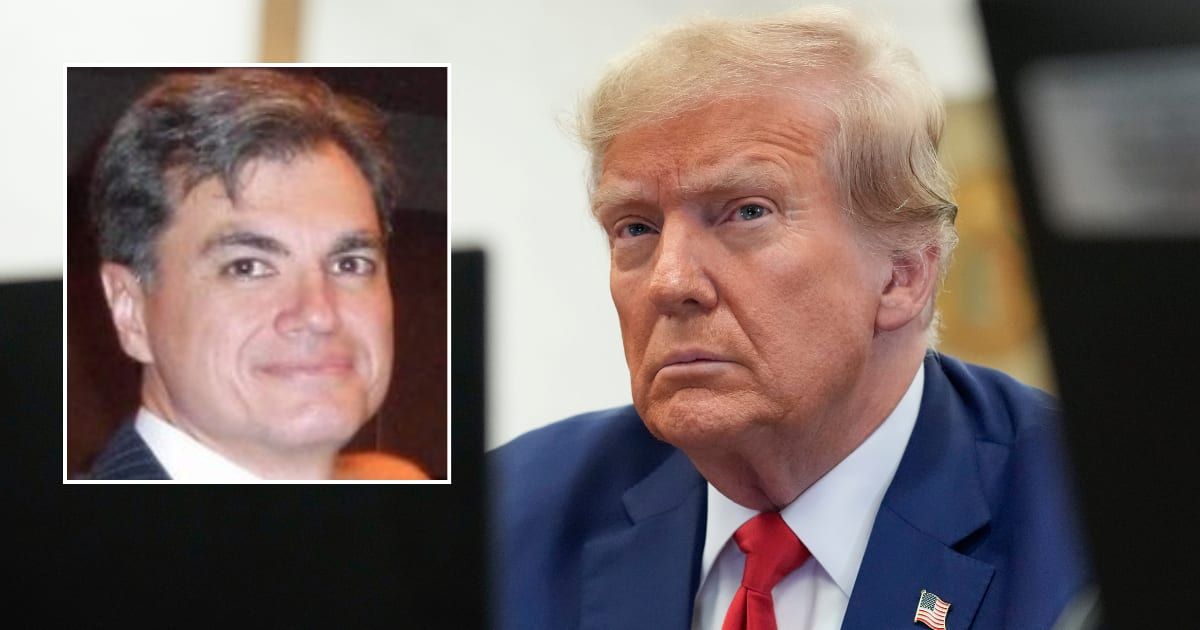
NEW YORK CITY, NEW YORK: In a dramatic turn during the hush money trial involving former President Donald Trump, Judge Juan Merchan harshly reprimanded Trump's defense lawyer, Emil Bove, accusing him of being "disingenuous" in his arguments. Trump shook his head in disapproval after this.
The courtroom witnessed a tense exchange that underscored the high stakes and intense scrutiny surrounding this case.
Defense's argument rejected during Trump hush money trial
Defense attorney Emil Bove attempted to persuade the court that Trump had acted on legal advice from Michael Cohen, his former lawyer, during the negotiations to silence adult film star Stormy Daniels before the 2016 election. This strategy was intended to allow the defense to argue that Trump relied on counsel's advice, thus justifying his actions.
However, Judge Merchan, visibly frustrated, dismissed this argument, reiterating a previous ruling against it. "Don’t get up. I let you speak, let me speak," Merchan told Bove.
"It was concerning when notice was not given in response to my order of February 7th. It is concerning when the term was changed to presence of counsel. I couldn't believe when I saw it again. I’m telling you my ruling is the jury will not hear that instruction from the bench nor are you permitted to make that argument. Period," the judge continued.
Bove, insisting he was not being "disingenuous", faced a stern rebuke from Merchan, who emphasized, "This is an argument you've been advancing for many many months. It’s denied. It’s not going to happen. Please don't raise it."

The contentious dialogue occurred during a critical hearing on the instructions that will be given to the jury, who will ultimately decide Trump's fate. The nature of these instructions is crucial, as they can significantly influence the jury's deliberations.
Over more than an hour, Trump's lawyers and prosecutors from the Manhattan District Attorney's office debated the precise wording of the jury charge.
Bove argued for an instruction addressing potential bias against Trump, proposing language that would ensure fair treatment. Prosecutor John Steinglass countered that such bias issues had been handled during jury selection and the standard instructions were sufficient.
Judge Merchan, acknowledging both sides, agreed to include a modified instruction from the prosecution, stating, "Because the prosecutors are going along with a modified version, I will go ahead and include it, the prosecution version."
Federal election law clash and other disputes
A major point of contention involved federal election law, with prosecutors accusing Trump of conspiring to corrupt the 2016 election by paying Daniels $130,000 in hush money.
The defense sought to include the term "willfully" in the jury instructions, arguing it was necessary to establish Trump's intent to commit a crime. Without this term, Bove contended, the jury might wrongfully convict Trump based on a flawed understanding of his intent.
Bove said it could "put President Trump in a position where this jury could convict him based on a flawed finding of some kind of intent to conceal a civil conspiracy," adding, "That’s a very serious concern for us."
Prosecutor Matthew Colangelo opposed this addition, stating that "willfulness" was not required to prove the crime. "Election law violation occurs when two or more people conspire to promote election to public office by unlawful means," he said.
Judge Merchan reserved his decision on this issue, reflecting the ongoing complexity and high stakes of the legal arguments.
Further disputes arose over the definition of intent and the term "accomplice." The defense requested language requiring the jury to find Trump had two separate intents: to defraud and to conceal another crime. Colangelo argued this would effectively rewrite the statute, a point Merchan agreed with, rejecting the defense's request.
Similarly, the defense wanted Michael Cohen named explicitly as an accomplice, while prosecutors preferred the term "accomplice" without specific reference to Cohen.
Judge Merchan expressed concern about potential prejudice, stating prosecutors could not imply that Trump's guilt was more likely simply because Cohen was convicted. After considerable discussion, the judge opted to modify the contentious instruction slightly but did not fully grant the defense's request.
What's next
The trial, fraught with legal complexities and heated exchanges, has notably captivated public attention and dominated the news cycle.
Trump faces 34 counts of falsifying business records, charges he denies. With closing arguments scheduled for next Tuesday, followed by Judge Merchan's final jury instructions, the trial is nearing a pivotal conclusion.
The jury, after a detailed and contentious charging conference, will begin deliberations soon, the Daily Mail reported.

